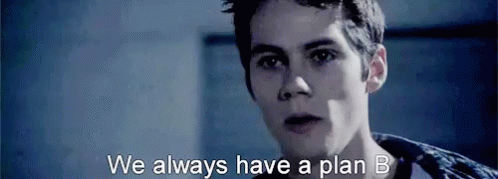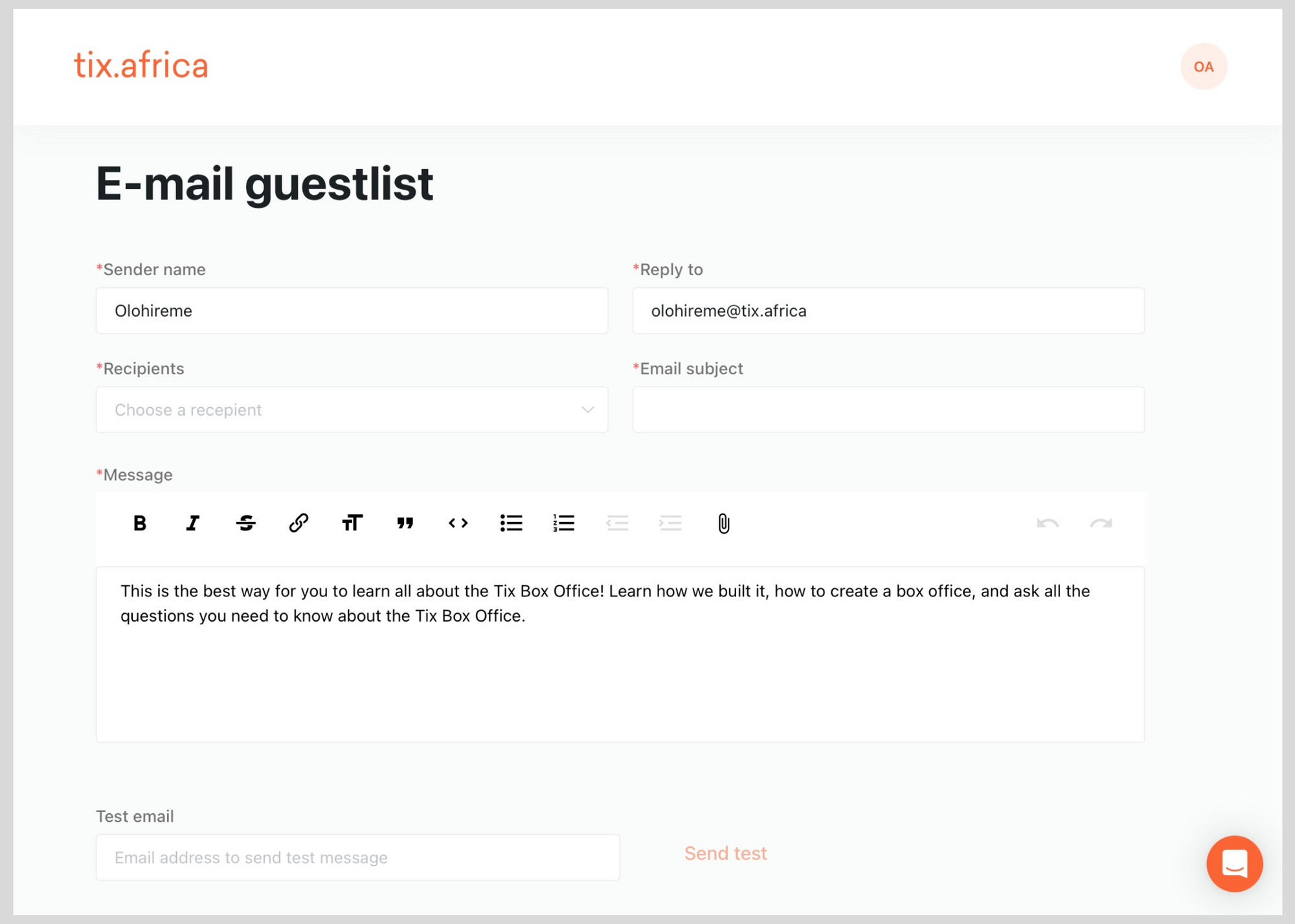Event Planning Tips: Dos and Don’ts of Planning a Successful Event

It’s an amazing feeling when you plan an event and receive great feedback from your attendees and surpass your ticket sale goals. By most standards, achieving this would mean that your event was successful! All event organizers, beginners or experienced ones, run into bumps along their event planning journey. Bumps here and there are normal, but we can help you cut them down significantly with these tips.
A lot of people give general event planning tips, but nobody tells you things you absolutely should and shouldn’t do if you’d like to plan a successful event, and that’s what we’re here for. We'll explore the essential dos and don'ts that will set your event on the path to being successful in this blog post, with insights from Chukwudozie Maduabum, one of the brains behind Eat Drink Festival, one of Africa’s largest food festivals organized by Eat Drink Lagos.
Dos of Event Planning
When it comes to organizing an event, there are certain practices that can make all the difference. By following these essential ’dos’, you can ensure that every aspect of your event is meticulously organized and executed. So, let's dive into the dos of event planning and discover how to create an event that will exceed your attendees’ expectations!
Do create a budget and stick to it

Planning an event without a well-defined budget is a surefire way to set yourself up for failure. A budget serves as your financial roadmap, guiding you through the various aspects of event planning and preventing overspending or unexpected financial setbacks.
To get started, determine the total amount you can allocate to the event and divide it into categories like venue, food and drinks, decorations, entertainment, and marketing. It's important to be realistic and research prices from different vendors to create an accurate and optimized budget. Additionally, diligently track your expenses and make adjustments throughout your event planning process. Sticking to your budget not only keeps you organized but also allows you to prioritize your spending wisely, making sure that you allocate funds where they will have the greatest impact.
If you're concerned about saving money as an event organizer, be sure to check out our helpful video on our Instagram page that provides tips on planning an event on a tight budget.
Do choose a venue that is appropriate for your event
Choosing the right venue is vital for a successful event. The venue sets the tone for the entire event, influencing the atmosphere, guest experience, and overall success.
Consider the event type, size, theme, and location when making your decision. Assess the venue's capacity, amenities, and layout to ensure it can comfortably accommodate your attendees and align with your event’s ‘vibe’. Also, don’t forget to consider the weather conditions, such as avoiding muddy surroundings during rainy seasons. Visit multiple venues in person to make an informed decision, because seeing the venue firsthand to make sure it's the perfect fit for your event is important.
Once you have considered all of these factors, you can narrow down your options and pick the perfect venue!
Do create an event planning timeline with milestones
To put it plainly, you need a clear event planning timeline with realistic milestones to succeed. It serves as a master guideline, ensuring that every task and detail is executed in an organized and timely manner.
Begin by setting a date for the event and work backwards, breaking the planning process into manageable stages. Each stage should have specific milestones, like securing a venue, finalizing sponsors, booking vendors, and designing event materials. Assign deadlines to each milestone, allowing for unexpected challenges. This timeline will help you delegate tasks and track progress, especially when working with a team.
By sticking strictly to your event planning timeline, you can stay on top of your responsibilities and ensure a smooth and successful event from start to finish.
Do have a plan for unexpected occurrences

No matter how well you plan your event, or how experienced you are, unexpected occurrences are bound to happen. That's why it's crucial to have a backup plan in place.
Identify potential risks like weather, technical issues, or vendor cancellations. Create backup options for critical elements such as alternative venues, equipment, or suppliers. Don’t forget to communicate the plan to your team and stakeholders so that everyone is aware of what to do in case of emergencies.
With a well-prepared backup plan, you can confidently navigate challenges, minimize disruptions, and deliver an exciting event experience for attendees.
Do communicate with your attendees

Effective communication with your attendees is an important aspect of event planning that can make or break your event. From when they buy their tickets to post-event follow-ups, keeping your attendees informed and engaged is a great way to build a successful event business.
First things first, write a clear event description, including key details. Utilize various channels like emailing attendees with the Tix email marketing feature, and social media to keep attendees informed about updates and changes. It’s also a good idea to encourage feedback and provide avenues for questions and special requests. During the event, make sure that your attendees have all necessary information for navigating the event.
After the event, follow up with thanks and ask them feedback for improvement. By maintaining open and consistent communication, you create an engaging experience, build a strong community, and leave a lasting impression for future events.
Do use event technology to make your event experience seamless

We mean, it’s 2023. If you aren’t using event technology then are you really being efficient? From registration to event execution, utilizing the right event technology can streamline processes, improve communication, and create a memorable experience.
Implementing an online registration or ticketing system that will provide you with essential attendee data is a great place to start. Additionally, incorporating Tix tools can also help you gather valuable feedback and measure event success. By embracing event technology, you can enhance attendee experiences, and ensure that your event stays ahead in an increasingly digital world.
Don’ts of Event Planning
From avoiding poor marketing practices to neglecting your event budget, we'll dive into the key areas where missteps can occur and explore the important "don'ts" of event planning, to help you navigate the planning process with confidence.
Don’t overspend on your event

Having a budget for your event is a great start, but it's crucial to stick to it. So you need to resist the temptation to overspend on extravagant decorations, venues, or entertainment. Splurging can drain your resources, leave you with financial issues, or reduce your event revenue.
Like we said earlier in this blog post, setting a realistic budget based on available funds is a great place to start. Throughout the planning process, track expenses, research prices, negotiate contracts, and explore cost-effective alternatives. Remember, the success of your event lies in the experience it offers, not its extravagance.
By prioritizing essentials and staying within your budget, you can deliver a memorable event that within your financial means.
Don’t choose an inappropriate venue for your event
It’s very important to choose the right venue, as it sets the tone and directly impacts the attendee experience. Don’t make the mistake of selecting a venue based on it’s popularity or availability. Instead, consider important factors like it’s capacity, layout, amenities, and ambiance. The venue should align with your event's objectives and desired atmosphere. Choosing an inappropriate venue can disrupt the flow and atmosphere, leading to attendee dissatisfaction. For instance, a business conference should not be held in a nightclub, and a children's party venue must have adequate restroom facilities.
By taking the time to choose the right venue, you can set a great tone for a successful event.
Don’t start promoting your event too late
Great event marketing is essential for attracting attendees and creating a buzz about your event. However, an important "don't" in event planning is starting your promotion too late. Late promotion limits reach and jeopardizes ticket sales.
To maximize your event marketing efforts, start early and create a marketing strategy. Identify your target audience and choose the appropriate channels, be it social media, email, or traditional advertising. Remember to create compelling content highlighting the event's key features.
Starting promotion early allows time for word-of-mouth referrals, generates excitement, and gives potential attendees the opportunity to plan and mark their calendars well in advance!
Don’t choose a vendor based on budget alone
One common mistake to avoid is choosing a vendor just because they can work with a low budget. While managing expenses is important, prioritizing price over quality and reliability can lead to significant issues. When selecting vendors for your event, consider factors beyond cost.
Take the time to research and evaluate their reputation, expertise, and past work. Look for vendors who can meet your expectations in terms of service and professionalism. Read reviews, ask for samples or demos, and assess their capabilities. Remember, selecting a vendor based solely on budget may result in subpar services, poor communication, or last-minute cancellations.
Instead, aim for a balance between affordability and value. Choose vendors who fit your budget while possessing the skills and experience to seamlessly bring your event to life.
Don’t forget to provide food and drinks at physical events

Never underestimate the importance of food and drinks when planning a physical event that lasts for several hours. This is really important if you want to create a positive overall experience.
Food and drinks not only fulfill attendees' basic needs but also contribute to a welcoming and engaging atmosphere. Remember, you don't have to handle this aspect yourself. You can collaborate with food and drink vendors to sell their items at your event. It's a win-win situation, as attendees can purchase delicious food and drinks, while you can generate revenue by selling vendor spots.
By prioritizing food and drinks, your attendees will be satisfied enough to enjoy the other activities at your event!
Event planning can be a lot of work, but it is also a lot of fun. By following these dos and don'ts, you can increase your chances of planning a successful event. We can’t wait to see the events you plan with these tips! Did you love this? Subscribe to the Tix blog to get more tips like these.